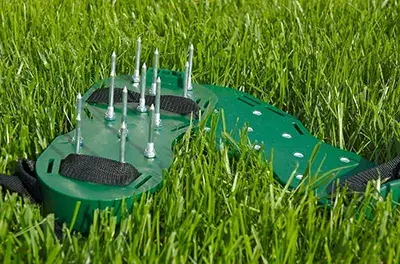Weeds provide a regular challenge to your lawn and garden. Usually urged on by poor maintenance practices, weeds can and will weaken your lawn.
Weeds provide a regular challenge to your lawn and garden. Usually urged on by poor maintenance practices, weeds can and will weaken your lawn. You will want to control weeds. In order to do this, you must water, fertilize and mow properly in order to keep weeds at manageable levels. If you have a weed management program in place, you will most likely reduce weeds to tolerable levels and prevent your lawn and garden from dealing with an unsightly weed patch or two. It’s true that you can’t fully eradicate weeks in your lawn, but if you practice good management of your lawn, you will be able to practically weed-free. You can do this without the extensive use of chemicals to boot.
WATER
Lawns need water. They need the right amount of water. Too much or too little watering can both lead to weeds. For example, you should give your lawn a deep watering once or twice a week. (If in drought conditions, stick to once a week.) Remember that frequent yet shallow watering doesn’t really help your lawn. You should water to about one inch deep (use a ruler to determine how deep you’re going if you need help). Anything less will help the weeds more than the lawn. Conversely, too little water will stress the lawn and is like a written invitation to have weeds grow in your yard.
FERTILIZE
Lawns, like all plant and grass life, need nutrients to survive and thrive. You must feed them regularly so they’ll develop healthy roots and blades. Feed your lawn about four times a year, starting in the spring. Some say it’s best to fertilize and feed with the first mowing of the spring. Others say you can wait until as late as May. It’s up to you. You know your lawn best. Then, it’s almost universally accepted that you do a late summer, fall and Thanksgiving feeding. This will keep your lawn lush and well-fed.
MOW
Mow your lawn regularly to keep weeds in the reeds. Healthy lawns can still have weeds, but the more you maintain your lawn, the fewer weeds you will have. Healthy doesn’t mean short, however. Experts suggest that you mow high because longer grass grows longer, healthier roots. It’s easy to set the mower on a higher setting and you’ll love the results. A thick lawn keeps weeds at bay.
These three modalities of lawn treatment will help keep weeds from overtaking your lawn. You may want to take more invasive measures such as pulling existing weeds up and using products to kill weeds. They have eco-friendly herbicides as well as the more chemical ones. All in all, weed control isn’t difficult. It just takes some time and energy.
To consult an expert in lawn care, we suggest that you contact us using the form on our website or by calling 512-990-2199 today.




